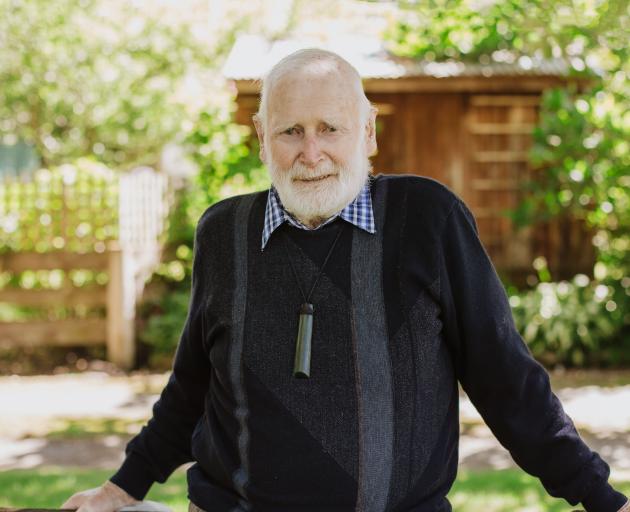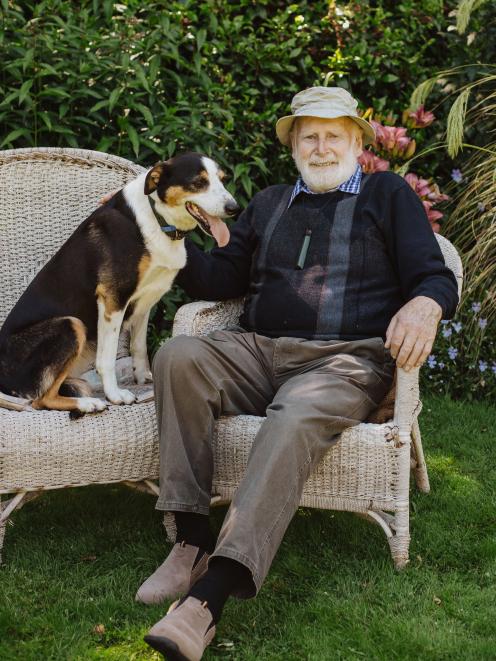
Southern man Malcolm David MacKenzie lived a rich life guided by his passion for family, friends, community and conservation.
The generations yet to come will benefit from the great legacy his lifetime has left.
Born on December 10 1935 to East Limehills farmers David and Dorothy MacKenzie, he was the eldest of three: sister Sheila and brother Gordon.
The family farm owned by his grandparents was passed down to his father and later to Malcolm and his brother. In 1971, he bought out Gordon’s share of the 196ha property ‘Heatherlea’.
From his first steps, he loved the land and took every chance to tootle along with his father around the farm.
He was no stranger to hard work. As a 3-year-old, with the help of the tricycle gifted by his grandmother, he was given the daily chore of collecting eggs from the farm’s 80 chooks.
Farm life was a mainly self-sustaining one where eggs, butter, milk and cream were bartered in return for groceries.
Pocket money was earned selling the cocksfoot grass seedheads he had harvested with a sickle from the roadside verges.
The farm had a large vegetable garden and a bountiful orchard which hosted 20 varieties of apple, two quince and two plum trees.

For more than 25 years his horticultural skills also grew about 2000 native trees from seed each year.
The South Coast Environment Society invited him to become its patron. Malcolm’s donated apple press is still available at the annual Riverton Heritage Harvest Festival for making fresh apple juice.
"Men of Trees", Forest and Bird, the Makarewa Land Care Group and the Southland Natural History Field club, all had Malcolm on their membership.
From 6 years old, a bus would collect Malcolm from the gate to take him to Limehills School but a petrol shortage forced a bus route change which shifted the stop to 2 miles away. So Jerry the Shetland pony was engaged to help with the daily school journey.
School fed Malcolm’s love of learning, books and interests in manual crafts. His inquiring mind thrived on science, maths and spelling. But another education board decision meant he and his two siblings were transferred to Browns School.
Three Charles Dickens books were presented to Malcolm for the Browns School Form 2 Dux Award. For the rest of his life the three books remained in his bookshelf’s pride-of-place.
Childhood holidays included caravanning on a family section in Riverton or parked by the Otapiri Stream where he spent days tickling trout in the stream. The Riverton section eventually had a permanent holiday home moved on to it, where he later took his own family for holidays.
At the end of Form 4, at 15 years old, his father’s ill-health called him home to take over the farm, ending his Winton High School education.
His life became a routine of daily and regular farm tasks including milking, animal welfare, crops sown and harvested and keeping the house supplied with meat.
Malcolm was 21 years old and single when his father died in 1957 — leaving the farm’s hefty death duties to him and his brother to pay off.
In 1959, during a Sunday visit to a neighbour’s farm, he met Margaret and despite her having a beau, he was determined she was going to be his. In 1961 he met her at the altar of Invercargill’s St Paul’s Church in front of 65 guests.
In 1962, Heatherlea had a new home built on the land to host the new family. Their daughters Linn and Rosalie and son Alastair soon filled the rooms with the young sounds of the next generation.
Living on Heatherlea, Malcolm’s passion for conservation thrived. He decided he wanted to preserve 40ha of his land’s wetlands and native bush by establishing two QEII covenants — one each at the north and south of the farm.
Southland Forest and Bird Society member Brian Rance said Malcolm was always aware that if he did not do something to protect the natural area, it could be lost if it was ever sold to someone without the same mindset.

"He saw that potential to protect it and to give it the opportunity to have the restoration and recover in the long term."
Mr Rance said Malcolm had a wide range of interests and was a strong community member in an environmental and conservation sense.
"He was always interested in what was going on ... showing an interest in what other people were doing — very supportive and encouraging. When he was physically unable to help, he offered advice or other assistance, such as buying trail cameras," Mr Rance said.
As a man of action, things changed when Malcolm got his teeth into a project. The Otapiri community had a hall built in 1957. Teams of volunteers shovelled gravel from the Oreti River by hand to make concrete for the hall — until Malcolm loaned his newly acquired McCormack farm tractor.
The hall became home to a local small bore rifle shooting club, where Malcolm later achieved a spot on a national team. The new hall was used weekly by the newly formed Otapiri drama and table tennis clubs as well as regular country dances — and Malcolm served on all the club committees for up to 32 years from their inceptions.
More projects caught his interest — like a new Otapiri School, the Deep Cove Education Trust and Les Hutchins Fiordland Travel Community Trust.
Others were started where he believed change was needed. He spearheaded the campaign and successfully saved Invercargill’s Scottish Hall, established the Forest Hill Predator Free Trust and started Southland recycling.
For decades Malcolm championed raising community awareness of the importance of conservation and recycling.
As a founding member and chairman of the 1999 Southland Community Wastebusters Trust he said: "It’s not just for us, but for future generations. We don’t want them to look back in horror at what has been done to the environment."
After his children left home, Malcolm and Margaret hosted AFS Exchange students which led to him becoming the AFS support co-ordinator for five years and committee member for 10.
His AFS involvement opened the doors to tramping and leading student parties on the Routeburn and Milford Tracks.
The tramping fostered his passion for conservation further and opened opportunities to join multiple Department of Conservation volunteer trips which included studies and observations of fur seals, yellowheads, penguins, skink mapping, snipe relocation as well as landwork in the Skippers Canyon, and on Codfish, Stewart and Centre Islands. His passion attracted the eye of the national Conservation Board that he was invited to join.
Further recognition for his work also started to flow — one of his greatest came in 2007 when the New Year Honours list bestowed him the Member of New Zealand Order of Merit for his services to conservation.
A life of enormous generosity ended on January 14 when Malcolm MacKenzie died, aged 89. — Toni McDonald, with assistance from the Southland Oral History Project.











